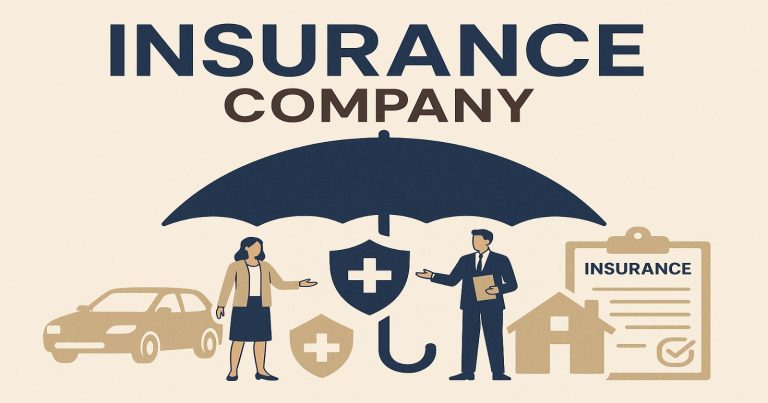Insurance companies make billions of dollars every year, and they don’t do it by paying out every claim that comes across their desks. They’ve perfected the art of finding reasons to deny claims, reduce payouts, or trick people into accepting way less money than they deserve. The worst part is that they do this by telling lies that sound totally reasonable if you don’t know better.
These aren’t just innocent mistakes or differences of opinion – these are deliberate deception tactics that insurance companies train their adjusters to use. They know that most people trust them and don’t understand how insurance really works, so they take advantage of that trust to save money. Understanding these common lies can help protect you from getting ripped off when you need insurance coverage the most.
“You Don’t Need a Lawyer for This Simple Case”
One of the biggest lies insurance companies tell is that your case is so simple and straightforward that you don’t need legal representation. They’ll say things such as “We can handle this quickly and easily without getting lawyers involved” or “Lawyers will just complicate things and take a big chunk of your settlement.”
The truth is that insurance companies absolutely hate dealing with lawyers because lawyers working in a reliable injury law office know their tricks and won’t let them get away with lowball offers. When you have legal representation, the insurance company has to actually justify their settlement offers and follow proper procedures. They can’t just make up reasons to deny your claim or pressure you into accepting unfair amounts.
They’re particularly likely to use this lie when your case is actually worth a lot of money. A “simple” car accident case might be worth $50,000 or $100,000, but they’re hoping to settle it for $5,000 by convincing you that lawyers are unnecessary. The more they insist you don’t need legal help, the more likely it is that you actually do.
“This Is Our Final Offer”
Insurance adjusters love to create artificial deadlines and pressure by claiming their settlement offer is final and non-negotiable. They’ll say things such as “This offer expires at the end of the week” or “If you don’t accept this now, we’ll have to withdraw the offer entirely.”
This is almost always a complete lie. Insurance companies don’t just walk away from legitimate claims because someone didn’t accept their first offer. They have a legal obligation to negotiate in good faith, and they know that their initial offers are usually way too low.
The “final offer” tactic is designed to prevent you from shopping around, getting legal advice, or taking time to understand what your claim is really worth. They know that if you have time to think about it or talk to other people, you’ll probably realize their offer is unfair.
Real final offers don’t come until much later in the negotiation process, usually after extensive back-and-forth discussions and documentation. If an insurance company is making a “final offer” within days or weeks of your accident, it’s definitely not final.
“You Were Partially at Fault, So We Can’t Pay”
Insurance companies love to blame accident victims for their own injuries, even when the evidence clearly shows someone else was responsible. They’ll claim you were speeding, not paying attention, or somehow contributed to the accident, then use that as an excuse to deny your entire claim.
In most states, being partially at fault doesn’t mean you can’t recover any money at all. Even if you were 20% or 30% responsible for an accident, you can still collect damages for the portion that wasn’t your fault. But insurance companies hope you don’t know this, so they act as if any fault on your part means you get nothing.
They’re also notorious for making up fault where none exists. They might claim you weren’t wearing a seatbelt when you were, or that you were texting when you weren’t, or that you failed to yield when you had the right of way. They’re betting that you won’t have evidence to contradict their version of events.
This is why it’s so important to gather evidence at the accident scene and never admit fault, even if you think you might have done something wrong. The insurance company will use any admission against you, even if it’s not legally accurate.
“Your Injuries Aren’t That Serious”
Insurance companies employ doctors and medical reviewers whose job is to minimize the severity of your injuries. They’ll claim that your back pain isn’t related to the accident, that you’re exaggerating your symptoms, or that you should be fully recovered by now.
They do this even when your own doctors say you’re seriously injured and need ongoing treatment. They’ll ignore MRI results, dismiss specialist recommendations, and question whether you really need physical therapy or surgery. Their goal is to make it seem such as your injuries are minor so they can justify paying you less money.
Sometimes they’ll even demand that you see their own doctors for “independent medical examinations.” These doctors are paid by the insurance company and almost always conclude that injuries are less severe than your treating physicians say. It’s a rigged system designed to give them ammunition to deny or reduce your claim.
The truth is that insurance companies aren’t qualified to practice medicine, and their medical opinions shouldn’t override those of actual doctors who have examined and treated you. But they’ll present their hired opinions as if they’re more credible than your real medical team.
“We Need a Recorded Statement to Process Your Claim”
Insurance adjusters will often call you shortly after an accident and ask for a recorded statement about what happened. They’ll make this sound routine and necessary, claiming they can’t process your claim without it. This is usually a lie designed to get you to say something they can use against you later.
You’re generally not required to give a recorded statement to the other party’s insurance company, and doing so can seriously hurt your case. The adjuster will ask questions designed to get you to admit fault, downplay your injuries, or contradict things you might say later.
They might ask innocent-sounding questions such as “How are you feeling?” hoping you’ll say “fine” before you fully understand the extent of your injuries. Or they’ll ask about the accident details when you’re still in pain and not thinking clearly, then use any inconsistencies in your story as evidence that you’re lying.
If they really need a statement for legitimate reasons, it can usually be provided in writing after you’ve had time to recover and think clearly about what happened. The recorded statement is almost always a trap.
“You Waited Too Long to Report Your Injuries”
Insurance companies will claim that because you didn’t go to the hospital immediately after an accident, your injuries must not be real or must not be related to the accident. This is particularly common with soft tissue injuries, concussions, and other conditions that don’t always show symptoms right away.
The truth is that many serious injuries don’t cause immediate pain or obvious symptoms. Adrenaline can mask pain for hours after an accident. Some injuries, such as herniated discs or traumatic brain injuries, might not become apparent until days or weeks later. This is medically well-established, but insurance companies pretend not to know this.
They’ll also use any gap in your medical treatment as evidence that you’re not really injured. If you missed a few physical therapy appointments or waited a week to see a specialist, they’ll claim this proves your injuries aren’t serious. This is unfair because people have work, family, and financial constraints that affect when they can get medical care.
“Your Medical Bills Are Too High”
Insurance companies routinely challenge the cost and necessity of medical treatment, claiming that your doctors are overcharging or providing unnecessary care. They’ll say you could have gotten the same treatment cheaper somewhere else, or that you didn’t really need all those tests and procedures.
This puts you in an impossible position because you have to choose between getting the medical care your doctor recommends and avoiding arguments with the insurance company. They’re essentially practicing medicine without a license by second-guessing your healthcare providers.
The reality is that insurance companies have financial incentives to question every medical bill, regardless of whether the treatment was necessary or reasonably priced. They’ll challenge legitimate expenses hoping you’ll give up and accept less money rather than fight about every bill.
Fighting Back Against Insurance Company Lies
The key to dealing with insurance company deception is understanding that their interests are directly opposed to yours. They make more money by paying you less money, so everything they tell you should be viewed with skepticism. They’re not your friend, they’re not looking out for your best interests, and they’re not giving you honest advice about your case.
Document everything, question their claims, and don’t let them pressure you into quick decisions. If something they’re telling you doesn’t sound right, it probably isn’t. Trust your instincts and get independent advice before accepting their version of events or their settlement offers.


